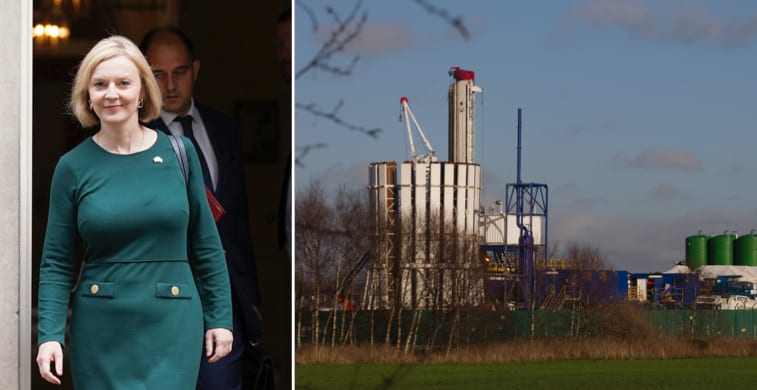bakgrund
Hydraulic fracturing
Wikipedia (en)
Hydraulic fracturing, also called fracking, hydrofracking, and hydrofracturing, is a well stimulation technique involving the fracturing of bedrock formations by a pressurized liquid. The process involves the high-pressure injection of "fracking fluid" (primarily water, containing sand or other proppants suspended with the aid of thickening agents) into a wellbore to create cracks in the deep-rock formations through which natural gas, petroleum, and brine will flow more freely. When the hydraulic pressure is removed from the well, small grains of hydraulic fracturing proppants (either sand or aluminium oxide) hold the fractures open.Hydraulic fracturing began as an experiment in 1947, and the first commercially successful application followed in 1950. As of 2012, 2.5 million "frac jobs" had been performed worldwide on oil and gas wells, over one million of those within the U.S. Such treatment is generally necessary to achieve adequate flow rates in shale gas, tight gas, tight oil, and coal seam gas wells. Some hydraulic fractures can form naturally in certain veins or dikes. Drilling and hydraulic fracturing have made the United States a major crude oil exporter as of 2019, but leakage of methane, a powerful greenhouse gas, has dramatically increased. Increased oil and gas production from the decade-long fracking boom has led to lower prices for consumers, with near-record lows of the share of household income going to energy expenditures.Hydraulic fracturing is highly controversial. Its proponents advocate the economic benefits of more extensively accessible hydrocarbons, as well as replacing coal with natural gas, which burns more cleanly and emits less carbon dioxide (CO2). Opponents of fracking argue that these are outweighed by the environmental impacts, which include groundwater and surface water contamination, noise and air pollution, and the triggering of earthquakes, along with the resulting hazards to public health and the environment. Research has found adverse health effects in populations living near hydraulic fracturing sites, including confirmation of chemical, physical, and psychosocial hazards such as pregnancy and birth outcomes, migraine headaches, chronic rhinosinusitis, severe fatigue, asthma exacerbations and psychological stress. Adherence to regulation and safety procedures are required to avoid further negative impacts.There is considerable uncertainty about the scale of methane leakage associated with hydraulic fracturing, and even some evidence that leakage may cancel out the greenhouse gas emissions benefits of natural gas relative to other fossil fuels. For example, a report by Environmental Defense Fund (EDF) highlights this issue, focusing on the leakage rate in Pennsylvania during extensive testing and analysis was found to be approximately 10%, or over five times the reported figures. This leakage rate is considered representative of the hydraulic fracturing industry in the US generally. EDF has recently announced a satellite mission to further locate and measure methane emissions.Increases in seismic activity following hydraulic fracturing along dormant or previously unknown faults are sometimes caused by the deep-injection disposal of hydraulic fracturing flowback (a byproduct of hydraulically fractured wells), and produced formation brine (a byproduct of both fractured and nonfractured oil and gas wells). For these reasons, hydraulic fracturing is under international scrutiny, restricted in some countries, and banned altogether in others. The European Union is drafting regulations that would permit the controlled application of hydraulic fracturing.



